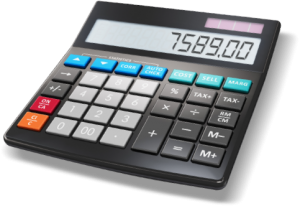Measuring & Controlling Stress
“Global financial crisis!”, “world business slowdown!”, “international banking collapse!”, if you haven’t been pummelled by the doom and gloom merchants over the last couple of months, you must have been on Mars!
So, how is all of this negativity affecting you?
Boiling Mad?
If you drop a frog into hot water, he’ll jump out! But, the story goes, you can drop him into cold water, then heat it slowly and he’ll stay. Being a cold-blooded creature, the frog’s internal temperature rises to match that of his environment, and so he notices nothing unusual – until suddenly, he’s dead!
This grim little tale provides a strong analogy for what happens to many people when the stress levels in their environment rise slowly but surely by unnoticed degrees, until they reach a fatal level. And then they’re dead!
So as the bad news purveyors multiply, has there been a gradual – and, perhaps “unnoticed” – increase in your stress levels recently?
About Camels
Like our frog story, the saying “the straw that broke the camel’s back” refers to the last tiny, little, incy, wincy item which, when added to the cumulative load of myriad other small items that went before it, exceeds the limit of the camels strength, and breaks its back.
Of course, there are many lesser degrees of stress which may merely make you unhappy, debilitated or catatonic but, hey, I did not set out to depress you – I just wanted your attention so that I could share some good news with you!
10 Second Stress Test
First, let’s find out whether you are in hot water in the first place – that is, if you’re stressed at all.
This test is very quick and easy: Touch your neck with the fingertips of both hands.
If your fingers feel really cold, then you are showing extra tension which may indicate a high level of stress.
If your fingers feel mildly cool, then you are showing some tension, which may indicate some stress.
If your fingers and neck feel the same temperature, then you are likely to be relaxed and comfortable.
If your fingers feel hotter than your neck, then you may be deeply relaxed.
How Stressed?
Next, let’s find out just how hot your water is right now, and how many straws you have accumulated on your back from the simple process of living for the last two years.
For each of the following major life events which have taken place in your life during the last 24 months, transfer the relevant “Weight” into the “Your Score” column, then total your stress burden. If an event occurred more than once, add a multiple of its weight to your score.
| Your Score | Weight | Event |
| 100 | Death of Spouse | |
| 73 | Divorce | |
| 65 | Marital separation or from relationship partner | |
| 63 | Jail Term | |
| 63 | Death of close family member | |
| 53 | Personal injury or illness | |
| 50 | Marriage | |
| 47 | Fired from work | |
| 45 | Marital reconciliation | |
| 45 | Retirement | |
| 44 | Change in family member’s health | |
| 40 | Pregnancy | |
| 39 | Sex difficulties | |
| 39 | Addition to family | |
| 39 | Business readjustment | |
| 38 | Change in financial status | |
| 37 | Death of close friend | |
| 36 | Change to a different line of work | |
| 35 | Change in number of marital arguments | |
| 31 | Mortgage or loan over $30,000 | |
| 30 | Foreclosure of mortgage or loan | |
| 29 | Change in work responsibilities | |
| 29 | Trouble with in-laws | |
| 28 | Outstanding personal achievement | |
| 26 | Spouse begins or stops work | |
| 26 | Starting or finishing school | |
| 25 | Change in living conditions | |
| 24 | Revision of personal habits | |
| 23 | Trouble with boss | |
| 20 | Change in work hours, conditions | |
| 20 | Change in residence | |
| 20 | Change in schools | |
| 19 | Change in recreational habits | |
| 19 | Change in church activities | |
| 18 | Change in social activities | |
| 17 | Mortgage or loan under $20,000 | |
| 16 | Change in sleeping habits | |
| 15 | Change in number of family gatherings | |
| 15 | Change in eating habits | |
| 13 | Vacation | |
| 12 | Christmas season | |
| 11 | Minor violations of the law (eg, traffic offence) | |
| Total Stress Burden |
Your Score
You’ll notice some surprising entries in the list (birth of a child; vacation; Christmas – I recall an article from last year in which we found that men can be more stressed by Christmas shopping than by battle!) they all create some degree of stress, and all add to our ultimate stress burden. So, here’s how the scores go:
0-149: Low
150-299: Medium
300 or more: High
What Does Your Score Mean?
This is the funny part. Some camels have stronger backs than others and so a fatal load for one can be a light workout for another, but . . . there is no denying the cumulative nature of a stress burden, and it would be foolish to ignore a ‘medium’ or ‘high’ reading here.
In fact, if you’re in anything but the “low” range, it would be healthy to take a look through the following “Stress Management Techniques” and to adopt those that suit your nature and lifestyle as sensible preventative measures, and as positive additions to your lifestyle.
How Stress Affects Our Bodies
Stress is an unavoidable and, to a large degree, potentially positive force in our lives.
Like all forces, the art lies in learning to manage the force to our advantage rather than to allow ourselves to be its passive victim.
What is Stress?
In the business context, it is what you undergo when your body is switched into “fight or flight” mode. The causes of stress can be internal (imaginary) or external (real).
As with visualization, it matters little to your mind which category the trigger falls into – if it’s vividly imagined, it’s “real” to your mind, and your mind will switch on whatever bodily responses it associates with fighting or fleeing that event!
Controlling Stress
You have the choice of managing stress “on the way in” or “on the way out”.
On the way in: The only successful method of pre-emptively controlling stress, is to have a positive outlook – a positive philosophy or understanding of how the world works, and what your place is in the scheme of things.
It is never important what happens to you; it is always important how you choose to understand and interpret it.
So: Cultivate a Positive Mental Attitude, and develop a meaningful philosophy.
For example, if you were to view Life as “a challenging learning process, which carries a guarantee that you will never be challenged beyond your means” you might find that you welcome change and challenge, and look about within your own resources for the means that you know must be there to meet it.
When faced with any challenging event, the healthiest discipline you can ever adopt is to vividly imagine yourself having overcome it before you even start to tackle it!
Always be aware of the basic fact that if you are healthy, fit and physically strong, you will always cope with and dissipate the effects of stress better than if you were not. So, one simple, effective and risk-free strategy to adopt whenever your stress level starts to rise, is to set about becoming healthier, fitter and stronger.
So: Cultivate a Positive Physical State, and react less to stress in the first place.
On the way out: Your body’s normal reaction to stress is, in purely physiological terms, an “extreme” reaction consisting, among other things, of the injection of a number of natural chemical stimulants into your bloodstream.
These substances are mildly toxic to your system and their by-products are even more so, but your body is designed to flush them during the severe physical activity (the fight or flight) that they are intended to induce.
Since our current society induces stress but does not sanction violent physical responses (or even permit us to run away from many of the situations we face), we must create opportunities that allow our body to purge the stress by-products.
You can do this in two ways:
- Actively: Through gross impact exercises, which mimic the “fight or flight” reaction and flush the system of stress toxins: racquet ball, squash, weightlifting, aerobics, swimming, power walking all assist the body in processing – and neutralizing – the toxic by-products of stress.
- Passively: There are a range of techniques you can learn that will effectively “process” stress out of your system, including:
Progressive Muscle Relaxation techniques in which you learn to guide yourself into a deeply relaxed state. These can be learned using physical and mental disciplines (eg. yoga) or by employing biofeedback mechanisms which enable you to gain greater control over what were previously assumed to be autonomic processes (heart rate, blood pressure, skin temperature, etc).
Restorative Therapies include hydrotherapy (warm, moving water induces relaxation in muscles, with a subsequent relaxation of the mind); sauna (induces increased blood flow and autonomic relaxation); massage (induces relaxation, can release body-retained stresses).
Autogenic Training such as self-induced deep relaxation or true Meditation (at 7-14 brain cycles per second) for around 20 minutes a day. Deep prayer also comes into this category.
Each of these types of technique enables you to put your body into a unique state that is very different from exercise which enables it to “backwash” its systems and flush stress toxicity, as well as carrying out a number of other processes in which the brain integrates recent stressful events into its system of understanding, values and knowledge (in much the same way we do when dreaming).
It could be well worth your while to assess the range of benefits that a simple meditation technique can bring busy people.
The Best Strategy
The best results for most people come from a “triple antigen” strategy of:
- Disciplined positive thinking (always imagine the best possible outcome);
- Regular physical activity (40 minutes of light-skin-sweat exertion, three times a week); and
- Deep relaxation (deep prayer, meditation, guided visualisation, massage).
For more information on saving your quality of life (and maybe your life) click to receive our 12-Step Stress Cure template .





